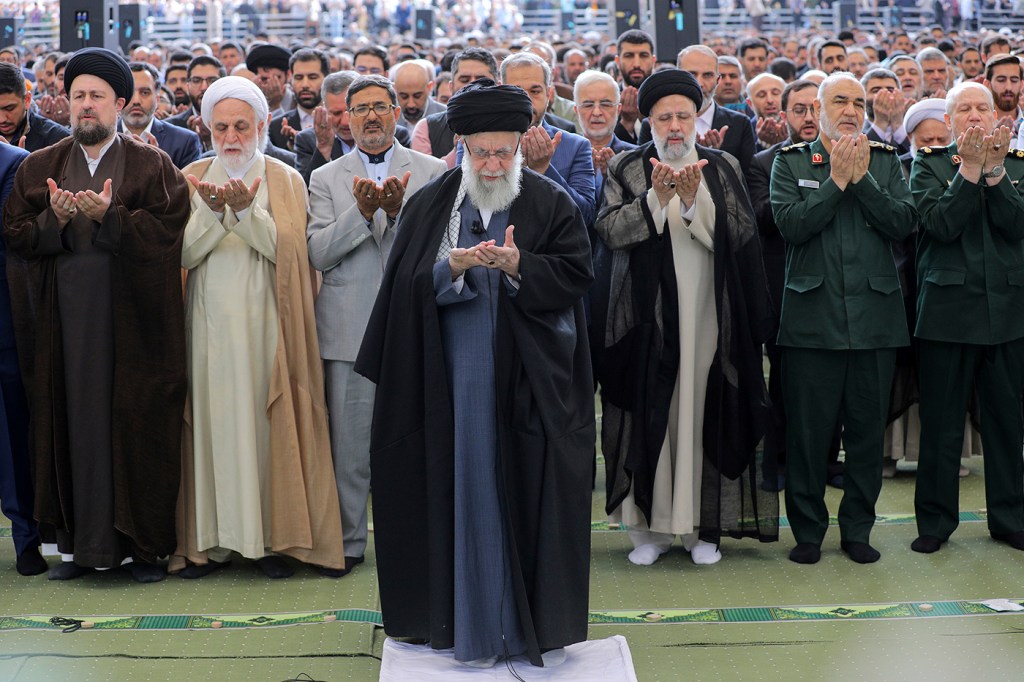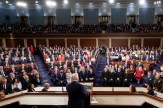Iran’s strike on Israel can be seen as ‘declaration of war,’ Northeastern expert says
Max Abrahms, associate professor of political science at Northeastern, says the attack could have “international implications for the U.S.” as well as regional impact in countries like Jordan, Saudi Arabia and Yemen.

This report is part of ongoing coverage of the Israel-Hamas war. Visit our dedicated page for more on this topic.
Iran launched a strike on Israel Saturday, deploying more than 300 drones and missiles at the country as part of a large-scale aerial attack.
Israel says 99% of the weapons were intercepted, but Max Abrahms, associate professor of political science at Northeastern University, says Iran’s actions can be seen as “declaration of war” and will have broader implications on the broader conflicts in the Middle East.
The attack, which comes six months after Hamas attacked Israel, is an apparent response to an attack by Israel on an Iranian complex in Damascus, Syria, earlier this month.
The United States says it shot down an undisclosed number of the drones in the attack.
“Iran has essentially declared war against Israel, and Israel is going to respond in a substantial way,” Abrahms says. “It’s possible Israeli Prime Minister Benjamin Netanyahu will respond by targeting Iran’s nuclear facilities.”
Abrahms notes that Iran and Israel have been enemies since the Iranian revolution in 1979. But what makes Saturday’s attack significant was that it was launched directly from Iran.
“Israel and Iran have been waging a low-grade war against each other in the shadows,” Abrahms says. “Iran has historically used its proxy groups to attack Israel from Yemen, Lebanon and even Palestinian territories with groups like Hamas, which are supported by Iran.”
Saturday’s attack came weeks after an Israeli airstrike at the Iranian Embassy complex in Damascus on April 1, killing three top Iranian commanders.
Abrahms says Iran’s response to that attack has caused the situation to be much more serious.
“Israel attacked some terrorists outside of Iran, and Iran has responded apparently by firing hundreds of drones and missiles into Israel, ” he says.
The Biden administration had vowed to support Israel against the attack and in the past few days sent increased military aid in anticipation of Iran’s attack. In a statement to the New York Times on Saturday night, a U.S. Department of Defense official doubled down on the United States’ support of Israel.
Featured Posts
“In accordance with our ironclad commitment to Israel’s security, U.S. forces in the region continue to shoot down Iranian-launched drones targeting Israel,” the statement says. “Our forces remain postured to provide additional defensive support and to protect U.S. forces operating in the region.”
Abrahms adds the attack could have “international implications for the U.S.” as well as regional impact in countries like Jordan, Saudi Arabia and Yemen.
“There are simultaneous attacks by Iran’s proxies from Yemen, from Lebanon,” he says. “So yeah, this is a very serious situation. We’re in uncharted waters here.”
Iran’s attacks on Israel come six months after the start of the Israel-Hamas War, when Hamas, a Palestinian militant group, launched a cross-border attack on Israel on Oct. 7. In response, Israel has led an intense campaign against Hamas, deploying bombs and other large scale military actions on the Gaza Strip in the name of eradicating the group.
Abrahms says Iran may have launched its strike against Israel on Saturday given the vulnerable state and its response to the Oct. 7 attack.
“Israel has lost some international prestige from its response to the Hamas’ terrorist attack on Oct. 7,” Abrahms says. “So, the Iranian leadership concluded that this is a propitious time to wage war against Israel.”












